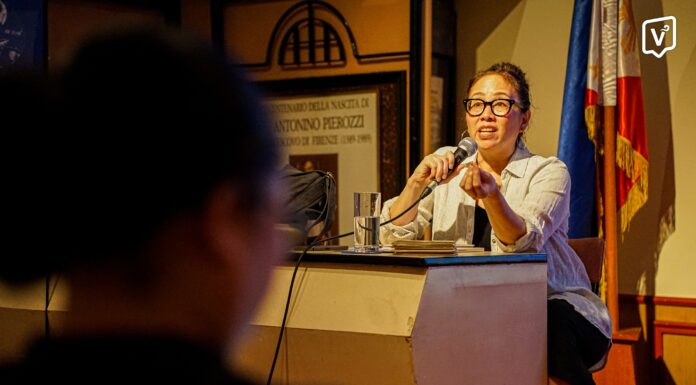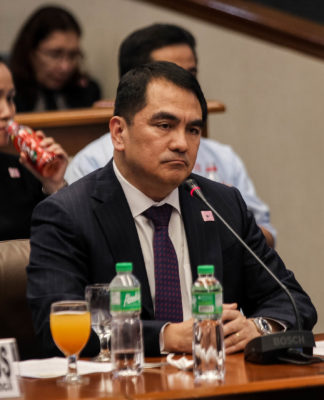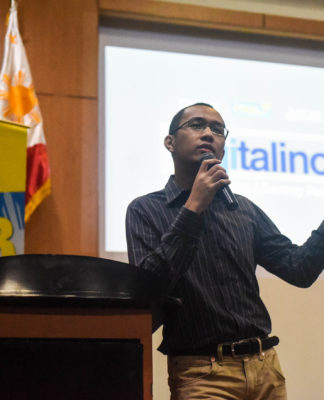 “MULAT na mulat ako sa bigat ng pasaning sasalubong sa atin. Kabilang ako sa mga nag-isip: Kaya pa bang ituwid ang ganitong kabaluktot na sistema?”
“MULAT na mulat ako sa bigat ng pasaning sasalubong sa atin. Kabilang ako sa mga nag-isip: Kaya pa bang ituwid ang ganitong kabaluktot na sistema?”
Despite complaining of the endemic corruption in Philippine government, President Aquino’s third State of the Nation Address last July 23 was just another attempt to sugarcoat the administration’s general failure to pave the way for the straight path, the proverbial “tuwid na daan.”
As usual, Aquino boasted of his accomplishments, which he presented in overwhelming charts, and proclaimed himself better than his predecessor.
The overconfident Aquino, citing positive statistics in the nation’s economy, healthcare, education, security and defense, environment, among others, even bragged of his “big break” in his anti-corruption campaign with the conviction of Chief Justice Renato Corona.
He even commended the accomplishments of cabinet members and officials such as Jose Rene Almendras, Proceso Alcala, Mario Montejo, Enrique Ona, Ramon Jimenez, Armin Luistro, Autonomous Region in Muslim Mindanao Gov. Mujiv Hataman, and Technical Education and Skills Development Authority General Director Joel Villanueva, many of whom are his Ateneo classmates or schoolmates, even if their performance for the past year left much to be desired.
At the least, the President was glossing over the failures of his own officials. Why praise Almendras when the Mindanao power crisis was compounded by his incompetence? Why praise Montejo when Pagasa still could not accurately predict the weather? Why praise Jimenez when his “It’s more fun in the Philppines” campaign is just a marketing gimmickry that merely tries to hide the fact that the Philippines has peace and order problems and is not really a safe country for tourists to flock in?
The speech—his longest so far—lasted for an hour and a half and received 120 applauses. But it didn’t reassure that the nation is on the right track.
It merely reassured that Aquino would do more of the same in the next year—to bash his predecessor on whom he blames just about everything, including his mistakes. “Pagtabihin po natin ang dalawang taon na ito, at ang nakaraang siyam at kalahating taon na ating pinagdusahan. ‘Di po ba’t sumusulong na ang agenda ng pagbabago?,” he said.
It turns out that Aquino is using corruption—which political analysts even admitted is an inevitable disease to every administration—as a defensive tool both to uplift his public approval rating and to downgrade his predecessor.
We may call it a strategic political agenda, but Aquino’s constant harping of the faults of the woman who had come before him is nothing but an alibi to obscure his own faults, such as his lack of leadership and vision.
Enough with the vindictive language. If the administration is really confident it can address corruption and perform far better than the previous government, why does it not just concentrate more on the pressing issues confronting Juan de la Cruz?
“Ang magpatawad, maaari; ang makalimot, hindi,” he said. “Kung ang nagkasala ay hindi mananagot, gagarantiyahan mo ang pagpapahirap muli sa sambayanan.”
Indeed, we deserve justice against those who have oppressed us. But then again, are we really moving forward? There are only four years remaining and the clock is fast ticking. Corruption reduction must be done alongside development and pro-active work to alleviate the poor and advance Philippine progress.
Aquino said he has proven that nothing’s impossible in the 25 months he has served. But he still has to prove that his “daang matuwid” is not an impossible dream.

















